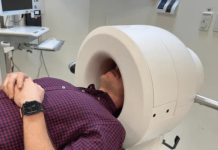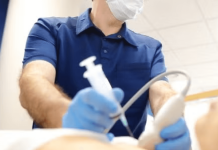Abiomed has enrolled the first patient in the PROTECT IV trial, which aims to obtain the clinical evidence needed to get a Class I guideline recommendation for Impella heart pumps in high-risk percutaneous coronary intervention (HRPCI).

Abiomed has enrolled the first patient in the PROTECT IV trial, which aims to obtain the clinical evidence needed to get a Class I guideline recommendation for Impella heart pumps in high-risk percutaneous coronary intervention (HRPCI).
The first patient was enrolled at Ascension St John Hospital in Detroit, US.
Ascension St John Macomb-Oakland Hospital cardiology chief Dr Ted Schreiber said: “This trial aims to generate the highest level of scientific clinical evidence to definitively demonstrate that Impella-supported PCI improves outcomes for high-risk patients, and we are excited to enrol the first patient in the trial.”
The large, prospective, multi-centre, two-arm, adaptive, randomised controlled trial (RCT) will assess the benefits of HRPCI with Impella as compared with HRPCI without Impella support.
Abiomed noted that the composite of all-cause death, stroke, myocardial infarction or hospitalisation for cardiovascular causes in a year will form the trial’s primary endpoint.
The trial intends to enrol 1,252 subjects at more than 100 hospitals in the US and Europe.
PROTECT IV will leverage technology advancements and best practices acquired since the completion of the PROTECT II RCT and FDA pre-market approval of the Impella 2.5 for HRPCI.
Data from the PROTECT II trial showed that the Impella 2.5 led to a 29% reduction at 90 days in major adverse cardiac and cerebrovascular events (MACCE), defined as the composite of death, stroke, myocardial infarction and repeat procedures, versus intra-aortic balloon pump.
The US Food and Drug Administration has approved Impella 2.5 and Impella CP devices for treating advanced heart failure patients who are undergoing elective and urgent percutaneous coronary interventions, like stenting or balloon angioplasty.
These interventions are performed to reopen blocked coronary arteries.
A principal investigator of the trial, Dr Gregg Stone said: “PROTECT IV is a landmark trial with the potential to revolutionise the interventional treatment of patients with complex coronary artery disease and left ventricular dysfunction.
“This academically-led study is designed to provide the highest level of robust evidence to guide management and improve global clinical outcomes for these high-risk patients.”




